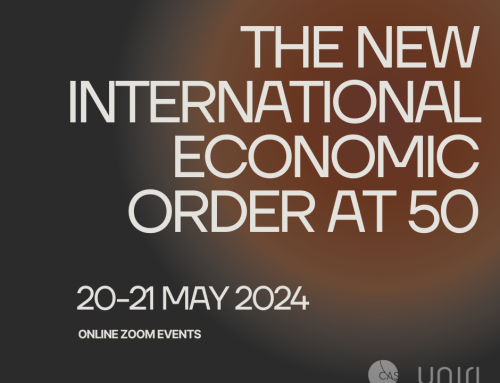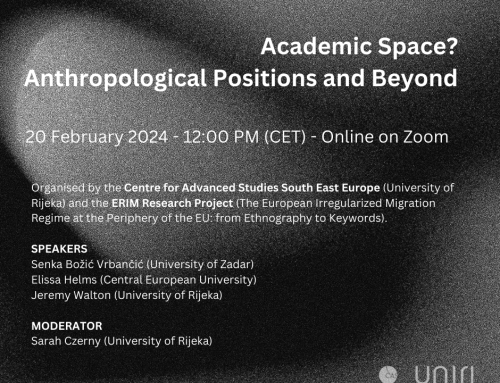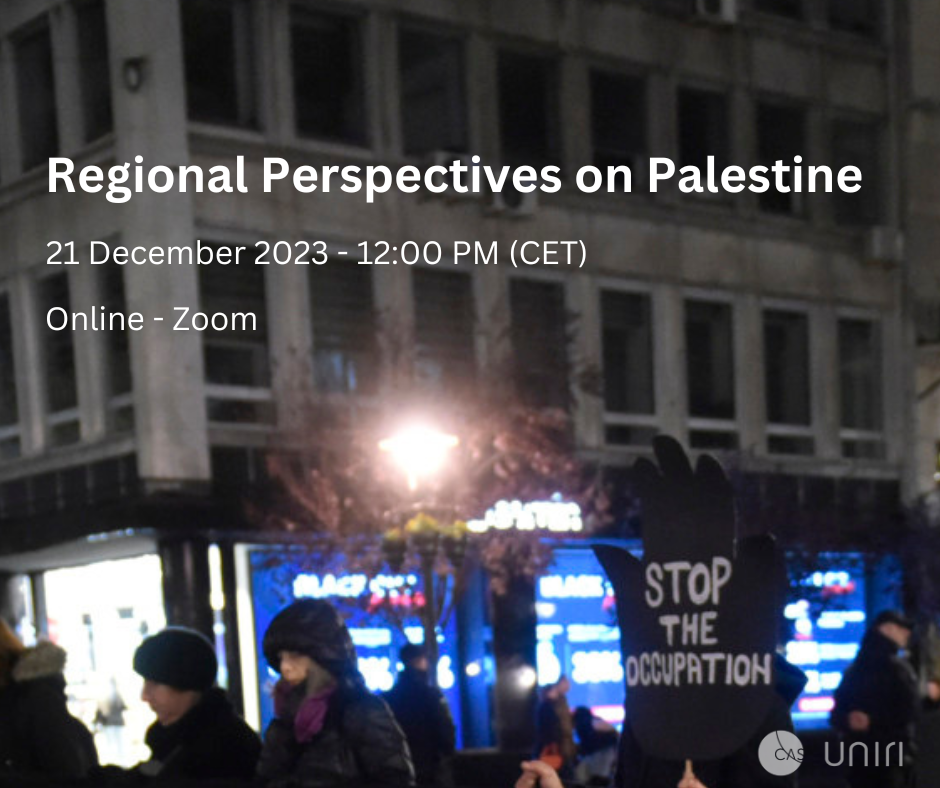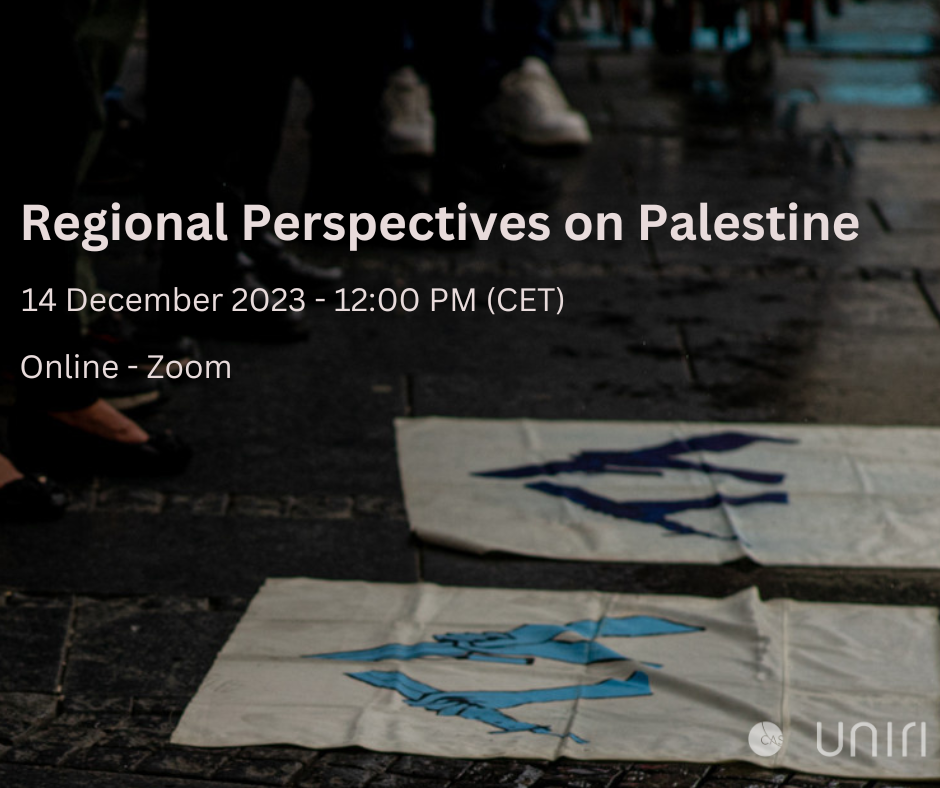Date: Thursday, 25 April, 2019
Venue: Europe House Zagreb, Jurišićeva 1/1
18:00 -19:30 | Welcome
Türkan Karakurt, Friedrich-Ebert-Stiftung Zagreb
Senada Šelo Šabić, Institute for Development and International Relations Zagreb
Public Discussion: Can Values Unite Us? (in B/H/S language)
Igor Štiks, writer
Antonija Petrušić, Law Faculty, University of Zagreb
Bojan Baća, Center for Advanced Studies Southeast Europe, University of Rijeka & Center for Southeast European Studies, University of Graz
Dorian Celer, Rijeka 2020
Moderation: Vedran Džihić, Institute for Political Sciences, University of Vienna
Friday, 26 April 2019
Venue: Lecture Hall A, Faculty of Political Science, Lepušićeva 2
09:30 -09:45 | Welcome
Türkan Karakurt, Friedrich-Ebert-Stiftung Zagreb
Senada Šelo Šabić, Institute for Development and International Relations Zagreb
Introductory words | Zoran Kurelić, Faculty of Political Science Zagreb
Petar Bojanić, Institute for Philosophy and Social Theory Belgrade
Keynote address: What is this thing called Populism?
Philippe Schmitter, European University Institute Florence
Discussion moderated by Senada Šelo Šabić, Institute for Development and International Relations Zagreb
11:15 -11:30 | Coffee Break
11:30 -13:30 | Panel: Reflecting SEE in Europe – normative horizon or marketplace?
Hannes Swoboda, International Institute for Peace
Dejan Jović, Faculty of Political Science, University of Zagreb Abel Polese, Tallin University
Nilay Kilinc, Center for Advanced Studies Southeast Europe, University of Rijeka
Moderation: Gazela Pudar Draško, Institute for Philosophy and Social Theory Belgrade
13:30 -14:30 | Lunch break
Venue: Courtyard Seminar Room
14:30 -16:30 | Panel: Values horizons in SEE – is there an end to particularism?
Aleksandra Kuratko or Jelena Berkovic (tbc), GONG Zagreb
Nedžma Džananović, Faculty of Political Sciences, University of Sarajevo
Jelena Pešić, Faculty of Philosophy, University of Belgrade Ana Chupeska, Law Faculty, University of Skopje
Milivoj Bešlin, Institute for Philosophy and Social Theory Belgrade
Moderation: Sanja Bojanić, Center for Advanced Studies Southeast Europe, University of Rijeka
16:30 -17:30 | Closing remarks
About the workshop
The region of Southeast Europe has been expected to progress almost linearly on the European path, internalizing democratic and liberal values that the EU stands for. The Article 2 of the Treaty of the European Union is the foundation on which the EU ‘normative power’ is based upon: “The Union is founded on the values of respect for human dignity, freedom, democracy, equality, the rule of law and respect for human rights, including the rights of persons belonging to minorities. These values are common to the Member States in a society in which pluralism, non-discrimination, tolerance, justice, solidarity and equality between women and men prevail.”
In Southeast Europe, this normative power was – at least for a while since 2000 – largely uncontested. The assumption was that there is and will be no “turning back” from (the path towards) shared values, democracy, and the rule of law. What almost naturally added to this notion of a “normative empire” EU was the assumption that democracy is the supreme form of a political system, one that is able to “export” its norms to the neighborhood and the Enlargement candidate countries and act as a “normative hegemon”. (see Haukkala in Whitman 2011) With shifting normative horizons globally and in Europe, the EU “normative empire” EU is challenged, be it by illiberal democracies from within, or by competitive (neoliberal) authoritarian regimes (Solska, Bieber, Taleski 2018) from outside including various forms of populist nationalism, tribalism, and xenophobia. In Southeast Europe we see a new “normative market-place” emerging, where the universality of EU norms and values such as democracy, human rights and freedoms and the principle of the rule of law are at stake and openly challenged by alternatives. Anti-EU, anti-liberal visions are on rise. Rather than having the EU as the only “exporter” of liberal values, we observe an import of “anti-liberal” standards from the EU.
The workshop will address the shifting normative horizons in Southeast Europe. It will reconsider the power of the EU as a “normative empire”, look into the historicity of the normative claims and discuss the current “normative market-place” in the region. It will also look into various forms of liberal and emancipatory action and engagement and their normative claims as opposed to right-wing and nationalist movements present in the region. Last but not least, it will engage in thinking about possible utopian horizons able to reclaim democracy, freedom and emancipatory societal values.
The workshop aims at bringing together representatives of academia, civil society and political parties (if possible) to engage in a vivid and, hopefully, controversial debate on normative horizons and clashing values in SEE.






